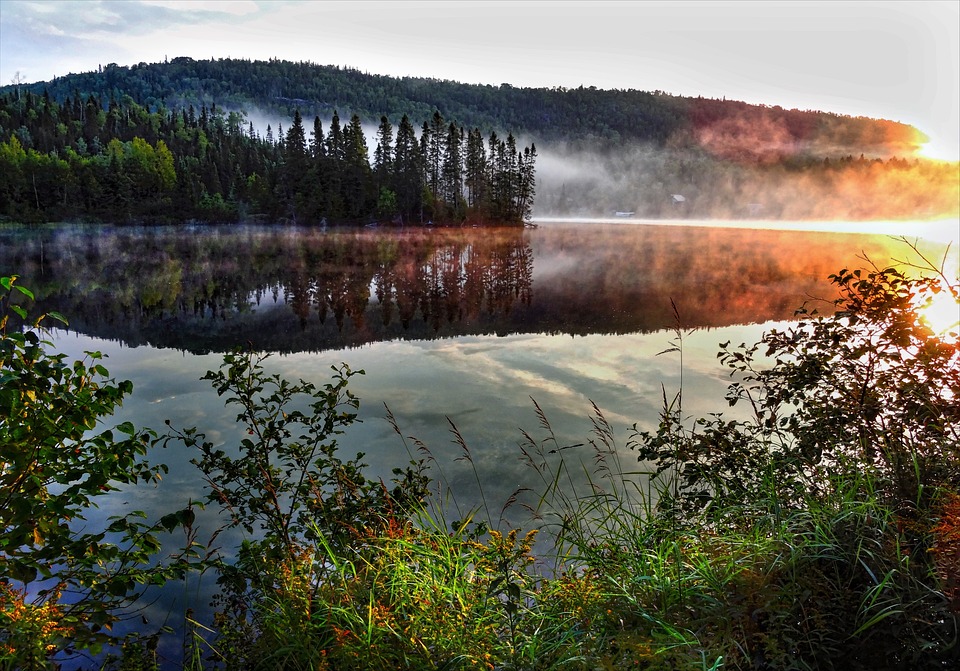What Is The Climate In Louisiana
Introduction
Louisiana, located in the southern United States, is bordered by Texas to the west, Arkansas to the north, and Mississippi to the east. Its unique geographic position at the mouth of the Mississippi River and proximity to the Gulf of Mexico significantly influence its climate. The state’s climate is a critical factor in shaping its diverse ecosystems, agricultural practices, and cultural identity.
General Climate Characteristics
Louisiana experiences a humid subtropical climate, characterized by hot, humid summers and mild winters. The average annual temperatures vary across the state, ranging from approximately 64°F (18°C) in northern regions to about 71°F (21°C) near the Gulf Coast. July tends to be the hottest month with average temperatures around 82°F (28°C), while January is the coldest, averaging about 50°F (10°C)【1】【3】.
Seasonal Variations
– Summer: Summers are typically hot and humid, with temperatures often exceeding 90°F (32°C). Afternoon thunderstorms are common, providing some relief from the heat.
– Fall: Fall sees a gradual cooling of temperatures and a decrease in humidity. This season is generally pleasant and marks the beginning of the hurricane season’s end.
– Winter: Winters are mild, with occasional cold fronts bringing temporary drops in temperature. Snow is rare but can occur in northern Louisiana.
– Spring: Spring brings warmer temperatures and increased rainfall, setting the stage for the summer heat. This season often experiences severe weather events, including thunderstorms and tornadoes.
Precipitation Patterns
Louisiana receives significant rainfall throughout the year, averaging between 45 inches (1,140 mm) in northern areas to over 56 inches (1,420 mm) in southern regions like New Orleans. Rainfall is unevenly distributed across seasons, with winter and spring typically being wetter【1】【3】. High humidity levels contribute to a feeling of discomfort during hot months, exacerbating heat-related challenges.
Influence of Geography
The state’s geography plays a crucial role in its climate:
– Gulf of Mexico: Proximity to this large body of water moderates temperatures and contributes to high humidity levels.
– Bayous and Wetlands: These features influence local weather patterns and contribute to Louisiana’s rich biodiversity.
The interaction between land and water helps maintain a unique ecological balance but also heightens vulnerability to flooding and hurricanes【1】【6】.
Climate Challenges
Louisiana faces several climate-related challenges:
– Hurricanes: The state is prone to tropical storms and hurricanes, particularly during the June to November hurricane season. Events like Hurricane Katrina have highlighted vulnerabilities【2】【4】.
– Flooding: Heavy rainfall can lead to significant flooding, especially in low-lying areas. The state has experienced increased flood risks due to climate change【5】.
To cope with these challenges, residents have adapted through various means such as elevating homes and investing in flood defenses【4】【5】.
Impact on Agriculture and Economy
Louisiana’s climate supports a robust agricultural sector:
– Key Crops: The long growing season allows for diverse crops such as rice, sugarcane, soybeans, and cotton【3】.
– Local Industries: Climate influences not only agriculture but also tourism and fishing—key components of Louisiana’s economy. The state’s natural beauty attracts visitors year-round【3】【4】.
Conclusion
In summary, Louisiana’s humid subtropical climate significantly shapes its environment and culture. While it supports a rich agricultural landscape and diverse ecosystems, it also poses challenges such as hurricanes and flooding that require ongoing adaptation efforts. Understanding these climatic factors is essential for residents as they navigate both daily life and long-term sustainability.
FAQs
– What is the average temperature in Louisiana throughout the year?
Average temperatures range from 64°F (18°C) in northern areas to 71°F (21°C) near the coast.
– How does Louisiana’s climate affect its agriculture?
The humid subtropical climate provides a long growing season conducive to crops like rice and sugarcane but also presents risks from flooding and droughts.
– What are the typical weather patterns during hurricane season?
The hurricane season runs from June through November, with increased storm activity leading to heavy rains and potential flooding.
– How does humidity influence daily life in Louisiana?
High humidity levels can make summers feel hotter than they are, affecting comfort levels and increasing heat-related health risks.
– What adaptations do residents make to cope with Louisiana’s climate challenges?
Residents often elevate homes, invest in flood defenses, and engage in community planning for disaster resilience.

Kyle Whyte is a notable scholar and professor at the University of Michigan, holding positions such as the George Willis Pack Professor in the School for Environment and Sustainability and Professor of Philosophy. Specializing in environmental justice, his work critically examines climate policy and Indigenous peoples’ ethics, emphasizing the nexus between cooperative scientific endeavors and Indigenous justice. As an enrolled Citizen Potawatomi Nation member, he brings a vital perspective to his roles as a U.S. Science Envoy and member of the White House Environmental Justice Advisory Council. His influential research is supported by various prestigious organizations including the National Science Foundation, and disseminated through publications in high-impact journals. Kyle actively contributes to global Indigenous research methodologies and education, with affiliations to numerous institutes and societies dedicated to traditional knowledge and sustainability. Recognized for his academic and community engagement, Kyle has earned multiple awards and served in various visiting professorships. His efforts extend to leadership positions on boards and committees focused on environmental justice nationwide.
